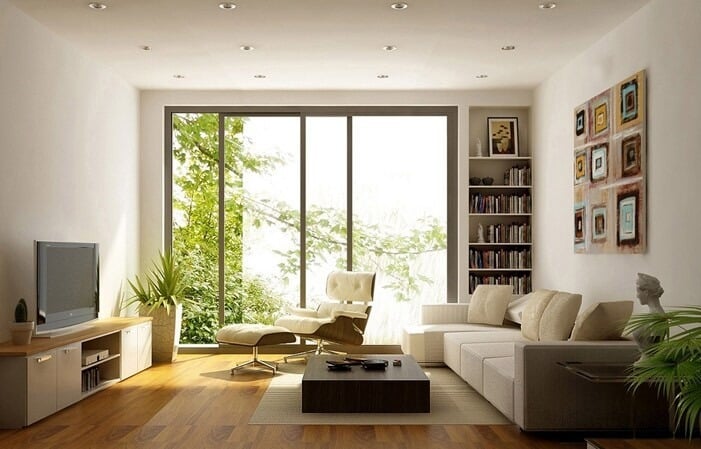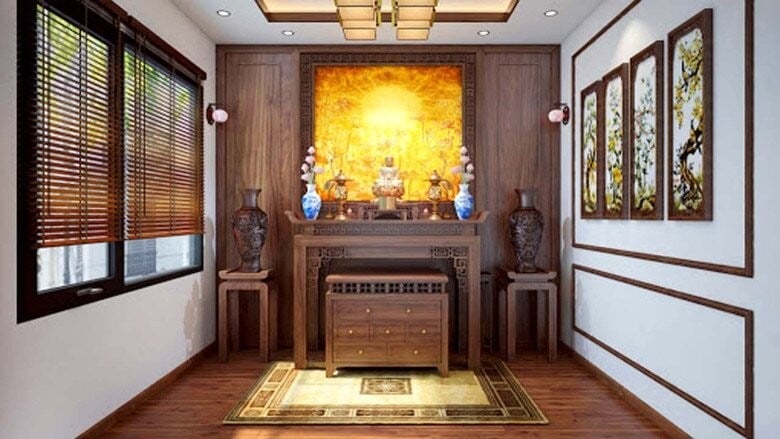In feng shui, light represents yang energy and plays a crucial role in bringing health and prosperity to the occupants of a home. A house filled with light promotes physical well-being, energizes, and enhances mental clarity and intelligence.
On the other hand, a living space that lacks natural light can induce feelings of fatigue and lethargy, leading to laziness and a lack of motivation. Therefore, natural light is essential for a healthy home. However, not every corner of the house requires an abundance of light. Improper lighting in certain areas can negatively impact the family’s fortune.
For instance, the living room, being a space for gathering and welcoming guests, should be well-lit to create a vibrant atmosphere. In contrast, the prayer room or altar area should have moderate lighting, avoiding excessive brightness. Striking a balance between light and darkness helps maintain a harmonious yin and yang dynamic, benefiting the entire family.
How does a well-lit living room attract wealth and success?
The living room is not just a space for entertaining guests but also a place where family members connect and spend quality time together. According to feng shui principles, this area is considered the ‘wealth position’ as it attracts wealth and prosperity. Therefore, it is essential to infuse this space with abundant yang energy through ample lighting.

The living room is a central space for family gatherings and welcoming guests.
Sufficient lighting in the living room can dispel negative energies and create a cheerful and positive ambiance, pleasing both guests and the gods of wealth. Conversely, a dark and gloomy space may evoke feelings of melancholy and anxiety, diminishing the appeal of the space. Additionally, natural light acts as a natural disinfectant, ensuring a dry, clean, and airy living environment.
Why should the prayer room or altar area avoid harsh lighting?
The practice of ancestor worship is deeply rooted in Vietnamese culture, with most families having an altar dedicated to their ancestors, and some even have separate rooms for worship. This space holds the strongest yin energy in the house as it is the resting place for the souls of ancestors and deities.
Feng shui dictates that this sacred area should not be overwhelmed with strong yang energy, but it should also not be too dark. Therefore, it is best to avoid intense light sources such as chandeliers, high-pressure sodium lamps, or direct sunlight from entering the prayer room or altar area.

Ancestral worship is a longstanding tradition in Vietnamese culture.
Excessive lighting can create a conflict with the yin nature of this space, potentially harming the souls of the ancestors and being considered disrespectful. It is believed that such an offense could drive the ancestors’ spirits away, leading to misfortune for the family. Hence, moderate lighting, such as a soft red glow, is ideal for the prayer room or altar area. Direct wind and light from the outside should also be avoided. If the altar is in the living room, a prayer cabinet can help create a dedicated space for worship. Additionally, it is crucial to refrain from placing the altar on top of the TV, next to an aquarium, or in close proximity to a brightly lit entertaining area, as these placements may negatively influence the energy of the worship space.


































